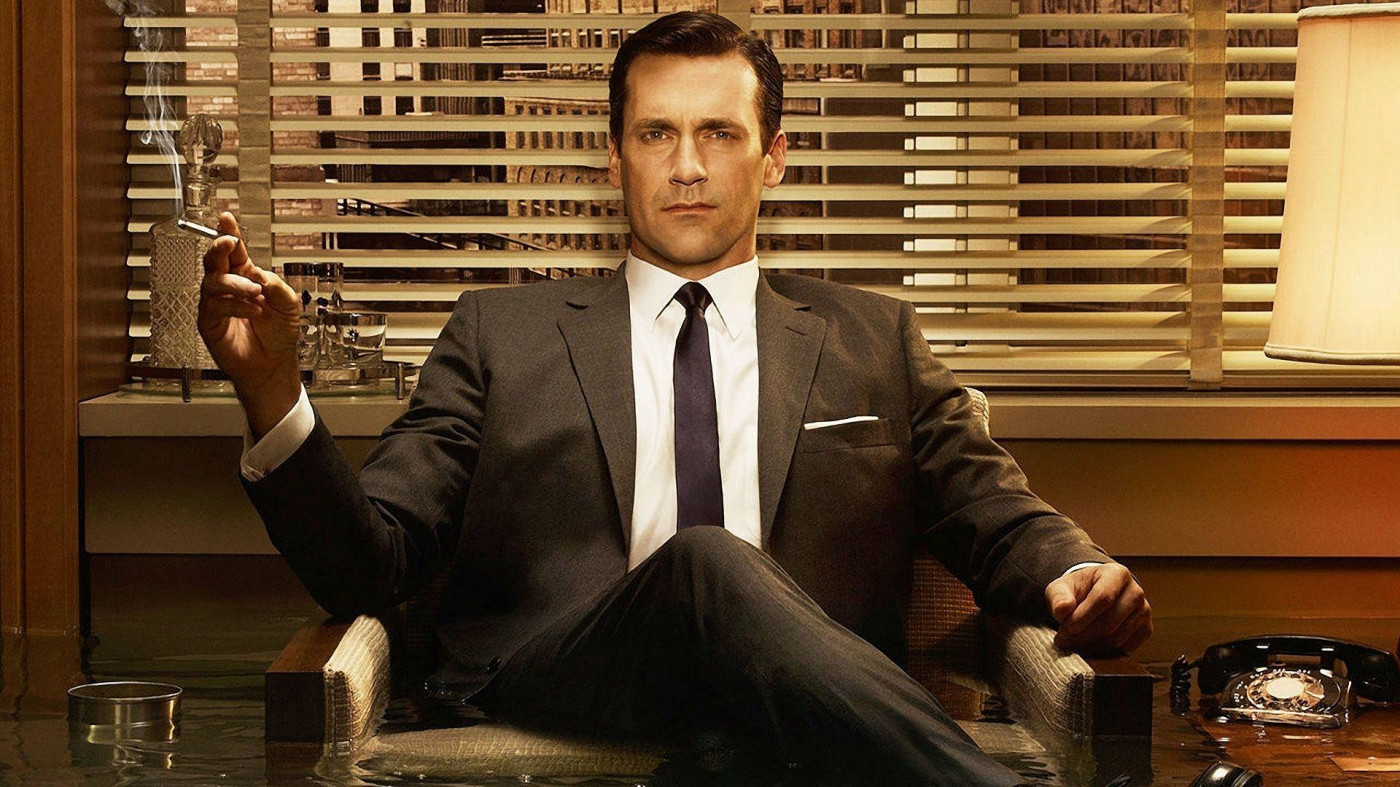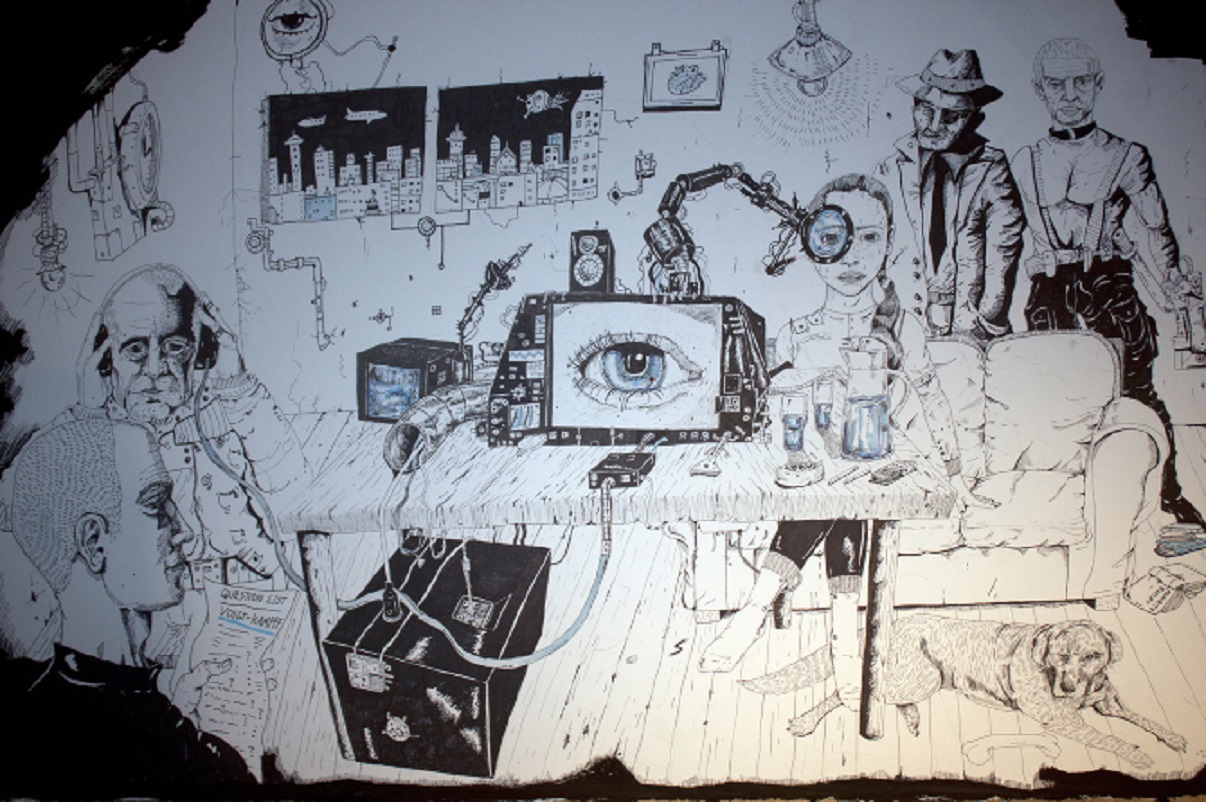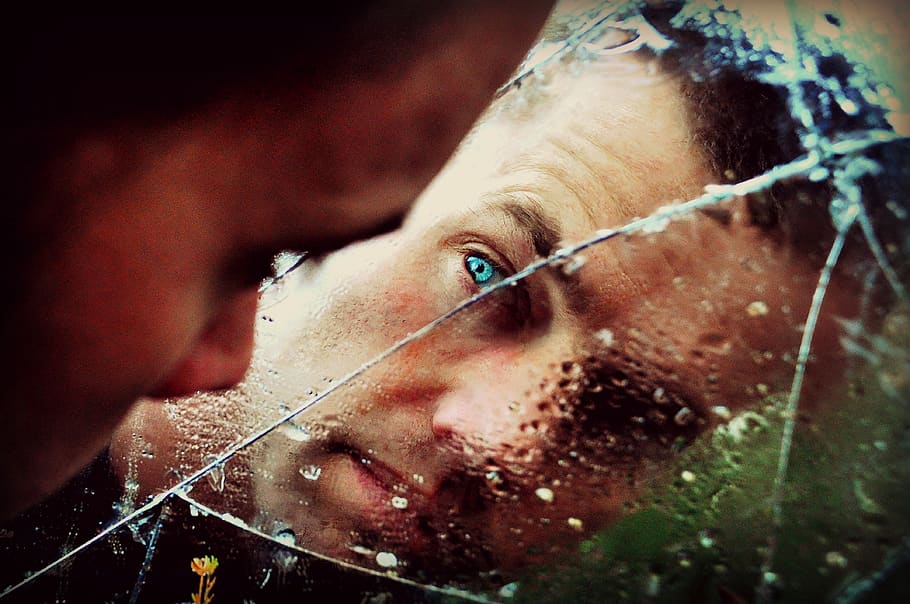When we manipulate the environment so as to obtain a specific outcome (which is of course what all manipulation is about!) then this equals ‘having no sense of humour’. It equals ‘being deadly serious’ or ‘being literal-minded’. When we are manipulating – or trying to manipulate – our environment so as to obtain a specific outcome we are ‘playing a finite game’. ‘Playing a finite game’, according to James Carse is where we play ‘not to be surprised’. If we get surprising then that is not good – if we get surprised then we lose. If we get surprised then, obviously, we are not obtaining the outcome that we want to obtain!
We could also say that the reason a finite game is called a finite game is because it never gets us anywhere. It’s not supposed to get us anywhere – the whole point is that it doesn’t get us anywhere. That’s the whole idea, even though this may not be immediately obvious. We pretend to ourselves that we want to get somewhere but really we’re scared of change because we suspect – quite rightly, as it happens – that this may involve a sacrifice of something that is important to us! So we like the idea of change but we don’t like the idea of letting go of whatever it is that we are attached to and so we settle on the compromise of playing finite games, where we always appear to be getting somewhere.
Having no sense of humour never gets us anywhere! Acting in a humourless, controlling way never gets us anywhere. When we are manipulating or controlling in order to obtain a specific outcome this means that we are trapped in the flat illusion of who we think we are and this is the most profoundly humourless situation there is! When we say this it gives us a clue (a big clue) as to what it is that we don’t want to sacrifice, what it is that we don’t ever want to let go of. The thing we don’t want to sacrifice is of course the self.
The self (or if we prefer, ‘the flat illusion of who we think we are’) lurks behind all controlling, all manipulation. That’s how we know that the self-illusion is there – because we can see manipulation going on, because we can see the controlling, the game-playing. Whenever there is the attempt to control the environment so as to obtain a specific outcome there is the flat, humourless illusion of ‘who we think we are’. Wherever there is the attempt to manipulate the environment so as to obtain the specified outcome there is the self. Or to state matters even more clearly, the humourless attempt to manipulate the environment so as to obtain a specified result equals ‘the self’..!
That’s what the self is, nothing more. There is nothing more to it than this – control for the sake of control, manipulation for the sake of manipulation, power for the sake of power. The ‘deadly serious’ attempt to control things so as to produce the desired result is always for the sake of protecting and maintaining the illusion of who we think we are. Purposeful activity claims to be about the stated purposes but really it’s about the illusion of self which wants to defend and promote itself via these purposes. The self is its purposes, therefore.
If I am engaged in manipulating my environment (which includes of course the people around me) then what I am really engaged in is the creation of the self. This is the ‘serious business’ –the business which there can be no joking about, no smiling about, no taking lightly of. Whenever we come across manipulation (or some project / endeavour that we are all supposed to be taking super-seriously and never questioning) we always know that there is a self there behind it trying its damndest to make itself real. Manipulation is when it comes down to it an act of desperation therefore; it is ‘desperate’ because it is the attempt to secure something that cannot be secured. This is just another way of saying that the purposeful elf is always motivated by fear, no matter what it may like to think, no matter what lofty motivations it may like to ascribe to itself. Seeing that this is the case, seeing that all of its goals, all of its purposes, are nothing else but ‘fear in disguise’, is the very last thing it wants to do! There’s a very good reason why the purposeful self doesn’t want to see that all of its purposes are ‘fear in disguise’ and that they aren’t on this account as wonderfully worthwhile as we’d like to make, and this reason has to do with protecting the notion that it actually has this thing called ‘free will’…
This notion, this fancy, is crucial to our identification with the humourless ‘reflex-machine’ which is the purposeful self – this is what makes it possible for us to see ourselves, when humourlessly identified with a bunch of mechanical reflexes, as being an autonomous agent in our own right, a ‘decider’, a ‘chooser’. But if the conditioned self never does anything other than what it is compelled to by virtue of its unquestionable need to avoid what it is afraid of, then there is – of course – no such thing as ‘autonomy’, no such thing as ‘deciding’, no such thing as ‘choosing’. If I can choose then this means that I am ‘there in the equation’ somewhere as an autonomous agent but if I can’t actually ‘choose’ anything (and obeying fear necessarily precludes choice) then this means that I’m not ‘there in the equation’. It’s all happening without my say-so. Fear – when acted upon – automatically negates free will, in other words.
If therefore we are identified with the mechanical or purposeful self – which as we keep saying has no ‘sense of humour’ about it at all – and wish nevertheless to believe that we do have free will (and we do need to believe this if we are to feel that we are this ‘self’, this ‘autonomous agent’) then there has to be some device, some trick whereby we can experience ourselves as having actual genuine volition even though we don’t at all. The only way we can do this is by being very unquestioning with regard to the impulses that we are acting out, the ‘rules’ that we are obeying. The more unquestioning (i.e. ‘serious’) we get the more we get to feel that the impulses we are acting out are what we ourselves want to do, and so the more we get to feel that we actually do have volition after all. In this case – if we never allow ourselves to reflect on what is going on – we get to feel that the rules which we are obeying are us and that us obeying them is in fact the very same thing as ‘our volition’. Obeying rules thus becomes the same thing as ‘free will’!
Here then we are face-to-face with a very remarkable irony – a very remarkable irony that is absolutely central to our existence as conditioned beings. We are also face-to-face with something that we will never see, face-to-face with an understanding that we will even come close to having. We’re profoundly oblivious to what we have referred to as ‘the central irony of conditioned existence’. And yet to be oblivious to this central irony is to be absolutely devoid of any genuine wisdom whatsoever! We might be clever (as we are clever!) in the ways of acting out the mechanical impulses that drive us, but we are not wise. If we don’t know this then we don’t know anything, in other words! All of our so-called ‘psychological understanding’ is based upon a completely false view of ourselves – it’s based on our view of ourselves as volitional beings.
The ‘psychological understanding’ that we don’t have (and are very far removed from ever having) is this:
What creates and maintains the self is ‘attempting to control’ and what ‘attempting to control’ comes down to is obeying rules.
We’re doing (or attempting to do) what the rules are telling us to do and this equals ‘controlling’. This is where it gets particularly interesting – by obeying or trying to obey these rules (which we are incapable of questioning as they constitute our ‘basic assumptions’) we create the ‘sense of self’. What makes this false sense of self seem like ‘the real thing’ (so to speak’) is the apparent volition that unquestioningly obeying the rules entails. The whole idea of ‘being a self’ is that we have free will as a self, that we have the capacity to make our own choices or decisions in matters. This however is the ‘central irony’ which we have been talking about because being 100% determined by external factors is to not be a self – instead of being a self we are simply extension of the rules that govern us. What we ‘are’ – if the truth were to be known, which it is not – is whatever it is that is controlling us, whatever it is that is making us do what we’re doing and think what we’re thinking. We’re the rules in disguise.
This is where ‘the joke that we don’t get’ comes in (if we may call it that) – a sense of self is created by unquestioningly following rules – which is of course the only way to follow them! – and yet there is no freedom at all in doing this. Unquestioningly following rules (or following rules that we cannot question, if we want to put it like that) is the very antithesis of freedom. Rules are the very antithesis of freedom and yet by slavishly identifying with a bunch of rules we are creating a sense of autonomy, a sense of independent selfhood for ourselves! How – we might wonder – is this ever going to work out for us? How is ‘not seeing the irony’ ever going to work out for us? The answer is of course that it doesn’t work out. We just think that it does and that’s the thin ice that we’re busy skating about on. We imagine that ignoring the irony (or not seeing the joke) is working out for us because we believe completely in the illusion that it is. Never was an illusion more fervently believed in than this (the illusion in question being that we have free choice in what we think and do)!
What we experience as the ‘self’ is merely a virtual reality package that has been manufactured for us by the thinking mind. It’s a kind of fantasy number that we’re running for ourselves without knowing that we’re running it – a fantasy in which we are an effective ‘agent’, the wilful ‘causer of effects’, the sovereign ‘decider’ of our own fate. Yet inasmuch as all our potential choices are predetermined for us by the set of rules that make up the thinking mind there is no freedom in the set-up whatsoever, not even a tiny little bit of it. Freedom doesn’t come into it. Rules cannot give rise to freedom and there is nothing in the thinking mind aside from rules – rules (and the categories that are created by rules) are both the beginning and the end of the rational mind…
As we’ve said, the reason we feel that we have got volition is because we have identified with the rules that are governing us – we experience the rules in question as being our volition. When I have the thought “I want this” then I perceive this as being my thought; I perceive myself to be voluntarily producing the thought whereas the truth of the matter is that the thinking mind is producing both my sense of myself (the sense of who or what I am) and my sense of me voluntarily thinking the thought that I’m currently thinking. Thought is thinking both me and the thought that ‘I’ am supposedly thinking, in other words, which means that I have got it the wrong way around. The tool is actually using the supposed ‘user’ of the tool, as J.G. Bennett says. The operator of the system is being operated by the system. Or as David Bohm says, thought provides us with the illusion that we are running the show. Thought provides me with the complete package – the package in which I am not the passive product of the thinking mind but the active producer of my own thoughts.
So when we see that the purposeful or controlling self is in its very nature fundamentally unfree and that all of its purposes are simply extensions of its abject slavery where does this insight get us? Generally speaking, all we know is ‘striving and struggling to achieve our goals’ – being able to do so is how we understand freedom. We call that ‘freedom’. For us the word freedom is short-hand (or a code phrase) for ‘the freedom to enact our unconscious conditioning’, ‘the freedom to obey the rules / invisible assumptions that are driving us’. This is an inverted form of freedom to be sure but it’s the only form we know, and so for us it serves as an effective surrogate for the real thing. It is such an effective surrogate in fact that we wouldn’t have the faintest clue as to how to go about doing without it!
When we see goals or purposes to be simply a continuance of our slavery (since all it ever does is to ensure the continued existence of the false / illusory / mechanical self that we’re trapped in) then the remedy for this unhappy situation becomes clear. If taking our goals and purposes seriously is the mechanism which keeps drawing us deeper and deeper into mechanical slavery, then the ‘remedy’ is to learn to take them less seriously. The cure for mechanical existence is to learn to ‘lighten up’, in other words! The cure for our neurotic misery (which we may or may not own up to) to become less invested in controlling, less invested in our agendas, less invested in ‘obtaining the desired outcome’. If we see the funny side of us not achieving the outcome that we had set our hearts on then already we are moving in the direction of genuine-as-opposed-to-false-freedom. We’re learning to not takes ourselves (i.e. the purposeful self) so seriously. Genuine freedom is where we can laugh at ourselves and our characteristic humourless strategizing in other words and this is of course something that we all very well on some level. Who doesn’t know this?
When we’re ‘unconscious’, or ‘unfree’, then everything we do we do for a reason. To the extent that we do everything for a purpose, with some agenda in mind, we are not actually present in our lives as who we really are. Which is – needless to say – the only way to be present! When we’re not present in our lives as who we really are (which is unconditioned consciousness) we’re only ‘present’ as the false mechanical humourless ‘idea or reflex of ourselves’ and that means that rather than be present we have handed everything over to the habit, to the reflex. We have in this case ‘handed our lives’ over to the routine-loving mechanical self and its unfree purposes, which are as we have said merely an extension of itself. The less we give ourselves over to the habit of ourselves, the reflex of ourselves, etc (i.e. the less invested we are in our controlling, in goals and agendas) the more we ‘come back to ourselves’, so to speak. This process of dis-identification with our goals (letting go of our attachment to the desired result) corresponds to what in India is called Karma Yoga. Karma Yoga being – from a Western point of view – an entirely baffling concept. It sounds to us suspiciously like working for nothing, working for no pay, no benefit, and this is of course the whole point. The false idea of who we are doesn’t get paid, doesn’t get propped up, and this is a very great benefit...






